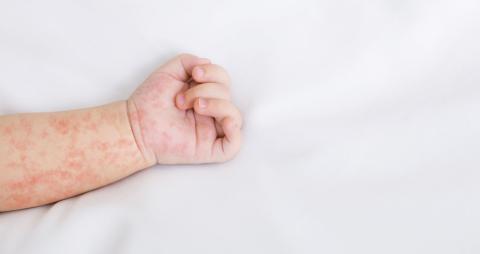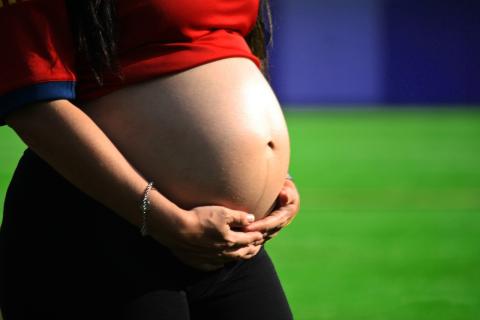CIBERESP
If you are the contact person for this centre and you wish to make any changes, please contact us.
Postdoctoral researcher at the Aging Research Center of the Department of Neurobiology, Health Care and Society at the Karolinska Institute in Stockholm (Sweden) and CIBERESP researcher
Researcher in social epidemiology, public health and biostatistics
Professor of Preventive Medicine and Public Health at the Autonomous University of Madrid, researcher at CIBERESP and IMDEA-Nutrition
Miguel Servet Senior Researcher at the Teaching, Research and Innovation Unit of the Parc Sanitari Sant Joan de Déu, member of the Department of Psychiatry at Warneford Hospital-University of Oxford (UK) and member of Spain's Consortium for Biomedical Research in Epidemiology and Public Health (CIBERESP)
Researcher in Vaccine-Preventable Disease Epidemiology at the National Centre of Epidemiology of the Health Institute Carlos III and member of CIBERESP
Professor at the University of Granada and researcher at the Cybernetics Centre for Epidemiology and Public Health (CIBERESP) and the Institute for Biomedical Research of Granada (ibs.GRANADA)
Nutritional epidemiologist at CIBERESP and IMDEA Food, professor at the Autonomous University of Madrid, and assistant professor at the Harvard School of Public Health
Scientific researcher at the Cancer and Environmental Epidemiology Unit of the National Epidemiology Centre, Carlos III Health Institute, member of CIBERESP and co-coordinator of the Cancer Epidemiological Surveillance Sub-programme - VICA of CIBERESP
Researcher in the department of preventative medicine and public health, Faculty of Medicine, Autonomous University of Madrid and CIBERESP
Global Director of Research and Programmes of the Gasol Foundation and member of the CIBER of Epidemiology and Public Health

Adopting a healthy diet at age 45 can add between two and three years to life expectancy in men, and between 1.5 and 2.3 years in women, according to a study based on data from more than 103,000 people in the United Kingdom. The positive impact is greater for men who follow a diabetes risk reduction diet (DRRD) and for women who follow a Mediterranean-style diet (AMED), says the article published in Science Advances.

Measles cases in Europe and Central Asia fell in 2025 compared with 2024, according to preliminary data reported by 53 countries in the World Health Organization (WHO) European Region. This decline aligns with the preliminary figures published this week by the European Centre for Disease Prevention and Control (ECDC). According to the WHO, countries in Europe and Central Asia reported 33,998 measles cases in 2025, representing a decrease of nearly 75 % compared with the 127,412 cases recorded in 2024. In Spain, however, the number of cases has increased, as shown by data from the Carlos III Health Institute. A few weeks ago, the WHO announced that Spain had lost its measles-free status.

The Planetary Health Diet promotes environmentally sustainable consumption, based, among other things, on increasing vegetable intake and reducing dairy and red meat consumption. Previous studies had found an association with better human health, although there were some conflicting results. Now, a study combining two cohorts of more than 150,000 people and a meta-analysis of 37 studies involving more than three million volunteers reinforces this association, finding that greater adherence to the diet is associated with lower all-cause mortality. The results are published in the journal Science Advances.

A team in the United States has analysed how exposure to environmental chemicals in previous generations influences the onset of the first menstruation. The researchers used data from the California Child Health and Development Study (CHDS) and analysed blood samples taken from 250 pairs from the 1960s. The results, presented at the annual meeting of the Endocrine Society in San Francisco (USA), show that although the average age of first menstruation remained stable between grandmothers and their daughters, it decreased by one year between daughters and granddaughters. Certain chemicals present in the blood of the mother and father were linked to the onset of puberty in their descendants, with stronger effects in granddaughters, according to the study, and with greater weight of male exposure.

A team of researchers has analyzed data from the World Health Organization to estimate the incidence of colorectal cancer in 50 countries around the world. Their conclusions, based on records up to 2017, are that in most high-income countries its incidence continues to increase in young people (under 50 years of age). This increase, however, is not observed in Spain. The results are published in the journal The Lancet Oncology.

A study conducted in Spain and five other European countries shows that exposure to mixtures of endocrine disruptors during pregnancy is associated with metabolic health problems in children. The research, published in JAMA Network Open, followed more than 1,100 mother-child pairs between 2003 and 2016 and found a correlation between measures of metabolic dysfunction in children aged 6-11 years, and their prenatal exposure to chemicals such as metals or organochlorine pesticides, among others. According to the authors, these results could be related to the current increase in metabolic syndrome across the lifespan, which results in an increased risk of cardiovascular disease and type 2 diabetes.

Switching some of the world's red meat consumption to forage fish - such as sardines, herring or anchovies - would reduce the number of deaths by between 500,000 and 750,000 by 2050, according to a study published in BMJ Global Health. The authors used data projections for that year for both red meat consumption and forage fish catches in 137 countries, substituting one for the other without exceeding the supply limit for the latter. The research estimates that sardines, herring and anchovies could replace 8% of the world's red meat, which would also serve to reduce the prevalence of diet-related diseases.

By 2050, there will be more than 35 million new cases of cancer worldwide, an increase of 77% from the 20 million cases reported in 2022. These are projections made by the WHO's International Agency for Research on Cancer (IARC), which has published the latest estimates of the global burden of cancer. Using data from 185 countries, IARC estimates that in 2022 lung cancer was the most common cancer worldwide, with female breast cancer in second place, followed by colorectal, prostate and stomach cancer. The authors stress the urgent need to address inequalities around these diseases.

Intimate partner violence is associated with an increased risk of depression and miscarriage, according to a systematic review of the scientific literature published since 1970. Sexual abuse in childhood is associated with an increased risk of alcohol use disorder and self-harm, says the study published in Nature Medicine. According to its authors, this analysis of 229 previous studies reveals that intimate partner violence and childhood sexual abuse have a more extensive impact on health than previously described.

A research team in Belgium found perfluoroalkylated and polyfluoroalkylated substances (PFAS) in drinking straws. The research, published in the journal Food Additives & Contaminants, analysed the presence of these persistent and potentially harmful compounds in 39 types of straws purchased from different shops, supermarkets or fast food chains. These substances were most prevalent in paper and bamboo straws, followed by plastic and glass straws. They were not detected in stainless steel straws.